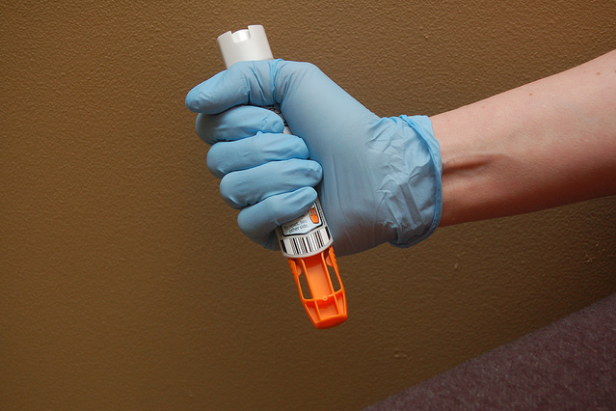
A tool that is used to save lives used to cost $50 back in 2008. Today, it costs $300.
An EpiPen, or an epinephrine autoinjector manufactured by Mylan, is a medical device used to treat anaphylaxis caused by allergies. In other words, these tools help people suffering from severe, sometimes potentially lethal, allergic reactions. And Mylan has a total monopoly on this tool.
Recently, Mylan has been under fire for increasing the price of EpiPens drastically over the past years. While the device only contains $1 worth of drug, a two-pack set of EpiPens cost $600.
Among those who are upset are Northwestern students.
"Personally, I found it to be incredibly outrageous,” said Communication junior Allison Towbes, who is allergic to bees and carries an EpiPen around.
Towbes, who also has a younger cousin with severe allergies, finds Mylan’s actions dangerous.
“You're keeping people from life-saving medication by raising the price because no one can afford it,” Towbes said.
About 3.6 million people were prescribed an EpiPen in 2015 according to the Wall Street Journal.
“[The news] shocked me and it kind of angered me,” said Weinberg sophomore Joy Basinger who has mild nut allergies. “There are tons of people out there who do need it. Having allergies is not a choice.”
The reason Mylan has been able to increase the price of EpiPen is because it has a monopoly on the market. Because similar products have difficulty entering the market due to testing and regulation, Mylan is the only company that sells epinephrine autoinjectors.
“It's kind of crazy to hear about,” said Rob Mayo, a Communication sophomore who always carries an EpiPen for his nut allergies. “You need those EpiPens in case anything ever happens.”
In addition, EpiPens are inelastic products, which means that people will buy the product regardless of price change due to people needing them. For EpiPen users like Mayo, this is a concern.
"I have no choice but to get an EpiPen,” said Mayo. “I only have one right now that expires in October so I'm going to have to buy one soon. I carry them everywhere I go and I can't imagine having to pay $300 just to get one. That stresses me out."
People all over the country have tried to find ways to deal with this problem. Some families have stopped buying EpiPens altogether, while others have tried to make DIY EpiPens on their own.
As long as Mylan has the monopoly over epinephrine autoinjectors, it is likely that this problem will persist, or even get worse. For Mayo, EpiPens are not only a life-saving device; they also give him comfort.
"If I have [an EpiPen], it gives me a sense of security," he said.